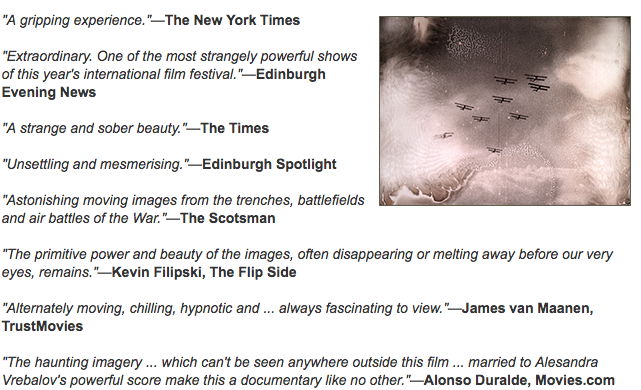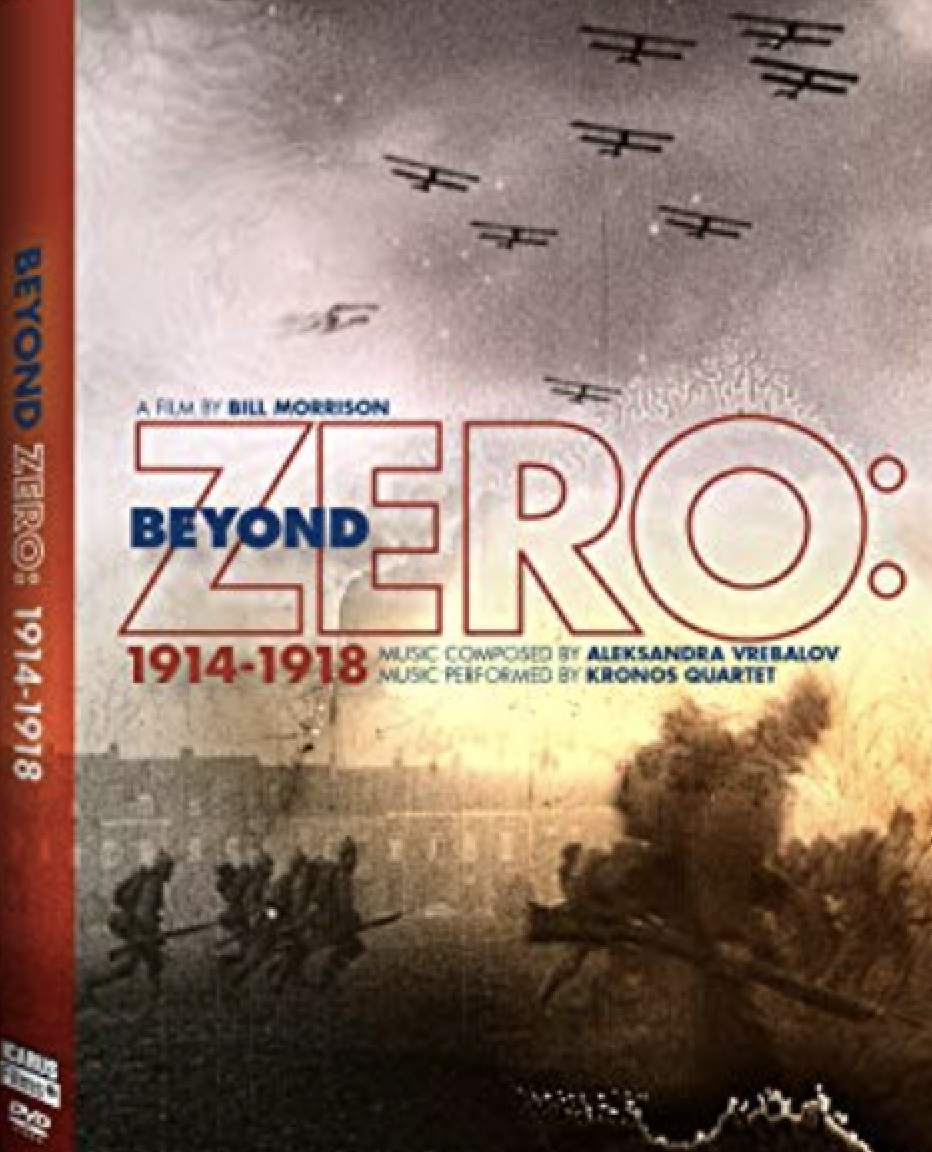BEYOND ZERO: 1914 - 1918
for string quartet and archival recordings
with a film by Bill Morrison
http://icarusfilms.com/if-zero
VREBALOV about the piece:
Unlike official histories, that have often romanticized and glorified the war, artists have typically been the keepers of sanity, showing its brutality, destruction, and ugliness. For many, across history, creating art in those circumstances served as a survival mechanism.
While working on Beyond Zero I was inspired by anti-war writings, music, and art created during and immediately after World War I, including, for example, the writings of Wilfred Owen and Siegfried Sassoon, the music of Satie and Debussy, and the Dada movement. The piece draws from their disillusionment about heroism and patriotism, summed up in Owen’s line from Dulce et Decorum, that to sweetly die for one’s country is the old lie.
Throughout the piece, there are several documentary recordings from different wars – from the horrific “Loyalty Speech” of James Watson Gerard who served as a US Ambassador to Germany until 1917, to military commands of Serbian and Bosnian troupes during the conflicts that led to the brutal falling apart of Yugoslavia in 1990s, to the chilling sound of air-raid sirens during the bombing of London in World War Two. My intention was to juxtapose these historical accounts of war with the finest expressions of spirit and creativity occurring at the same time – therefore Bela Bartok’s own playing of his Piano Suite written in 1916, and Huelsenbeck’s reading of his Chorus Sanctus, also written in 1916. A girl calling her cats is a symbolic reminder of suffering of women and children, and of longing for lost safety and domesticity.
Beyond Zero ends with fragments of a dark Byzantine hymn “Eternal Memory to the Virtuous,” chanted by the monks from the Kovilj monastery in Serbia in remembrance to all who lost their lives in the Great War and every single war since then. NO MORE WAR!

